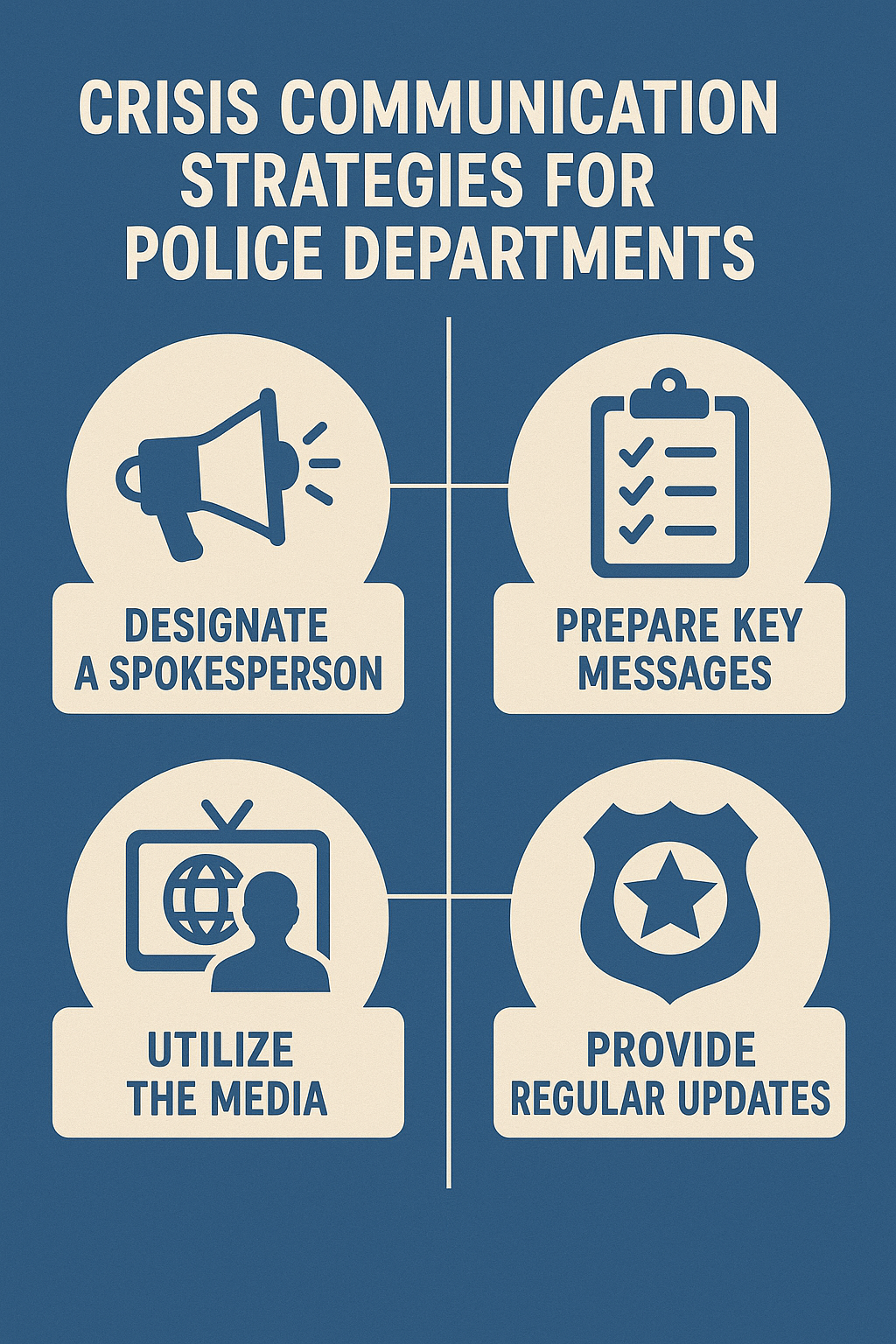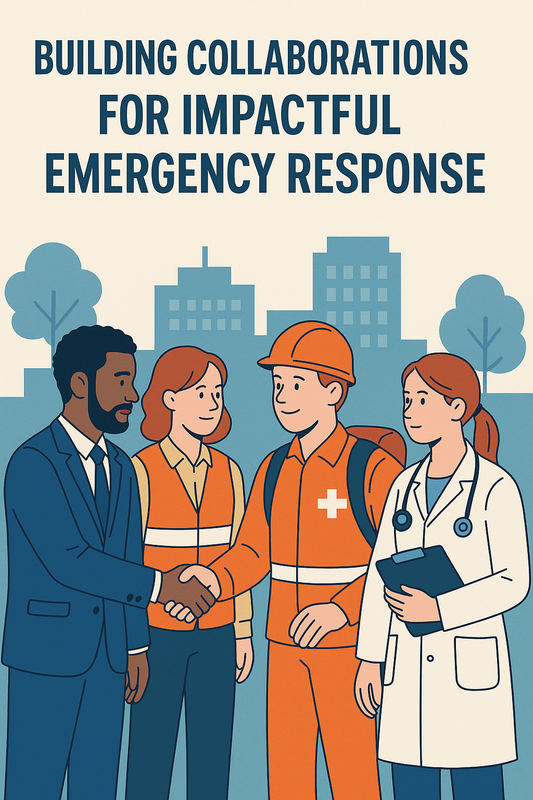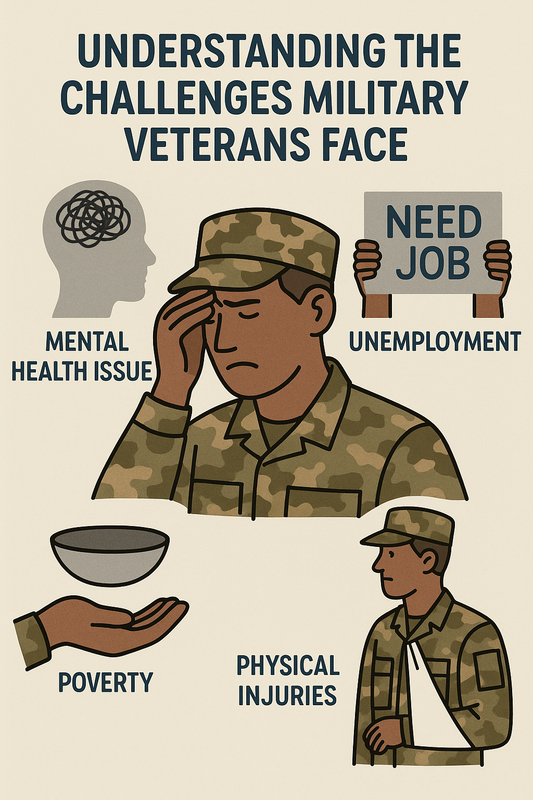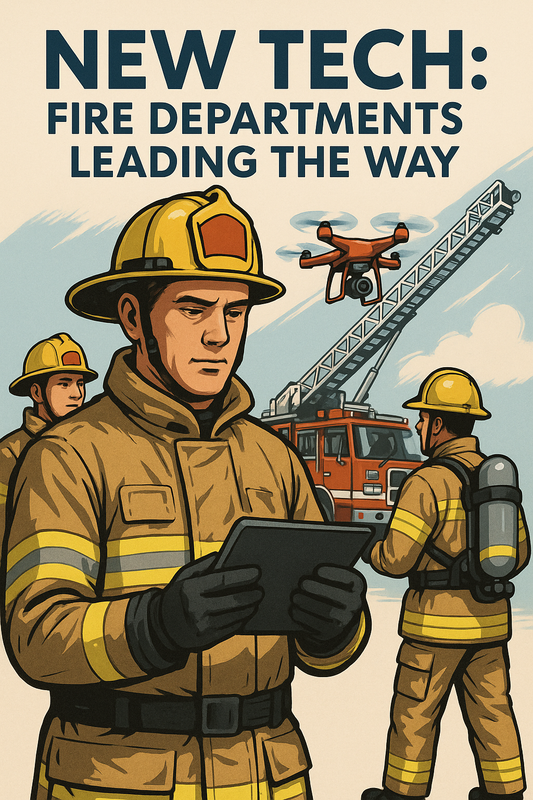
Crisis Communication Strategies for Police Departments
Frequently Asked Questions
1. What is crisis communication?
2. Why is trust important in police communications?
3. How can police departments prepare for potential crises?
4. What role does technology play in crisis communication?
5. How can police departments respond to misinformation during a crisis?
In today’s fast-paced world, effective communication is more crucial than ever, especially for police departments tasked with maintaining public safety. Whether addressing a community crisis, an internal incident, or public safety concerns, adopting the right communication strategies can make all the difference. This article will explore effective techniques and best practices for police departments to enhance their crisis communication efforts.
Understanding the Importance of Crisis Communication
Crisis communication is the process of communicating with the public during an unexpected event that threatens safety, reputation, or operation. The role of police departments in crisis situations places them at the forefront of community response. Effective communication can help maintain trust and transparency, reduce misinformation, and foster a supportive community environment.
Building Trust with the Community
Trust between law enforcement and the community is essential, especially in crisis situations. Police departments should prioritize transparency and authenticity in their communications. Key strategies include:
- Regular Updates: Keeping the community informed with updates during a crisis can help alleviate fear and misinformation.
- Open Lines of Communication: Utilize social media, community meetings, and newsletters to ensure the public has access to accurate information.
- Community Engagement: Actively engage with community members to gather their concerns and feedback, showing that their voices matter.
Preparing for a Crisis
Proactive preparation is a pillar of effective crisis communication. Police departments should develop a comprehensive crisis communication plan that outlines procedures, responsibilities, and communication channels to be used in various scenarios.
Identifying Potential Crises
It's essential to assess potential crisis scenarios that may affect the community. By predicting possible challenges, departments can tailor their strategies accordingly. Common scenarios include:
- Public protests or unrest
- Natural disasters affecting public safety
- High-profile incidents involving law enforcement
Establishing a Crisis Communication Team
A dedicated crisis communication team should be formed, consisting of members across various departments, including public relations officers, legal advisors, and senior police officials. This team should be trained to respond quickly and effectively when a crisis occurs.
Effectively Utilizing Technology
Incorporating the right technology can boost the effectiveness of crisis communication strategies. Police departments can leverage various platforms to disseminate information quickly and efficiently.
Social Media as a Tool for Communication
Social media platforms such as Twitter, Facebook, and Instagram allow police departments to communicate directly with the community in real-time. These platforms enable rapid dissemination of information and can be instrumental in:
- Providing updates during unfolding crises
- Combatting misinformation by sharing accurate details
- Encouraging community members to remain engaged and vigilant
Utilizing Mobile Applications
Developing a mobile application for community engagement can enhance crisis communication efforts. These applications can send alerts, provide safety tips, and offer resources for community members during emergencies.
Engaging with the Media
Media plays a significant role in shaping public perception during a crisis. Police departments must maintain positive relationships with local media outlets and understand how to effectively communicate with them.
Preparing Press Releases
Establishing a clear and concise press release protocol is essential. Police departments should prepare press releases that address key points such as:
- The nature of the crisis
- Details of response actions taken
- Contact information for follow-up inquiries
Holding Press Conferences
In cases of significant crises, holding a press conference can be beneficial. This allows police departments to relay information directly, mitigate confusion, and address community concerns. Here are some tips for effective press conferences:
- Be clear and concise in messaging
- Remain calm and composed while addressing the media
- Encourage questions from media representatives
Communicating with Diverse Communities
It’s crucial for police departments to recognize that they serve diverse communities. Tailoring communications to different cultural groups ensures that all members feel included and informed during a crisis.
Language Accessibility
Ensure that all communication materials are available in multiple languages spoken in the community. This will foster trust and ensure that critical information reaches everyone effectively.
Cultural Sensitivity
Incorporate cultural sensitivity into crisis communication plans by understanding the unique values and concerns of diverse community members. Engage with local organizations and leaders to gain insights into effective communication strategies.
Responding to Misinformation
Misinformation can spread rapidly during a crisis, complicating effective communication. Police departments should be ready to respond to rumors and false information swiftly.
Fact-checking Initiatives
Implement a fact-checking protocol to verify any claims circulating in the community or media. By staying ahead of misinformation, police departments can maintain credibility and reassure the public.
Bridging Relationships with Community Influencers
Engaging local influencers or community leaders can help spread accurate information quickly. By partnering with individuals who are respected in the community, police departments can ensure that their messages reach a wider audience.
Involving Medical Workers in Crisis Communication
Collaboration with local medical workers is essential during public health crises. Police departments should work closely with healthcare professionals to communicate effectively about health-related issues.
Joint Information Centers
Setting up joint information centers with healthcare agencies allows for a coordinated communication effort. This ensures that medical workers can relay information on public health while police address safety concerns and overall community response.
Highlighting the Role of Medical Workers
During crises, it’s crucial to showcase the contributions of medical workers. Police departments can support these professionals by recognizing their efforts in contributing to public safety and health.
Evaluating Crisis Communication Efforts
After each crisis, police departments should assess the effectiveness of their communication strategies. Understanding what worked well and where improvements are needed is essential for future preparedness.
Gathering Community Feedback
Feedback from community members is invaluable in evaluating crisis communication efforts. Gather insights through surveys or community forums to learn about public perception and areas for improvement.
Updating Crisis Communication Plans
Based on evaluations, police departments should regularly update their crisis communication plans. Continuous improvement ensures they remain effective and relevant, regardless of the challenges they may face.
Looking Ahead: Innovating for Future Challenges
As the world evolves, so too must the strategies of police departments. The future of crisis communication hinges on being adaptable, embracing new technologies, and maintaining connections with the community. Here are some steps to consider for future innovations:
- Embrace new communication technologies, such as AI chatbots for customer service.
- Conduct ongoing training exercises on crisis communication for all department staff.
- Continue engaging community members by hosting regular informational sessions and workshops.
By fostering a culture of preparedness, police departments can effectively communicate during crises, creating a safer and more informed community. Utilizing modern strategies such as working alongside medical workers, engaging with diverse populations, and leveraging technology ensures that departments are ready to handle any situation. Remember, effective crisis communication is not just about getting the message out; it’s about building trust, understanding, and a united community ready to face challenges together.
Explore the world of another Shopify or Wix store owner. Visit their captivating online store. Keep in mind that this is a promotional link, and we are not responsible for the content of the linked store.




